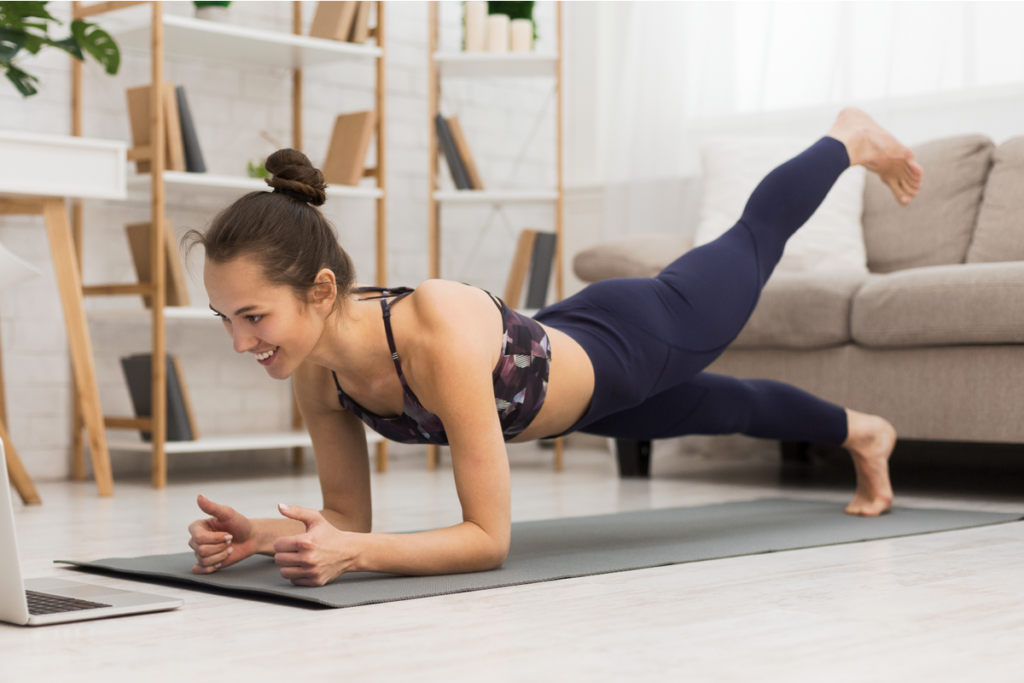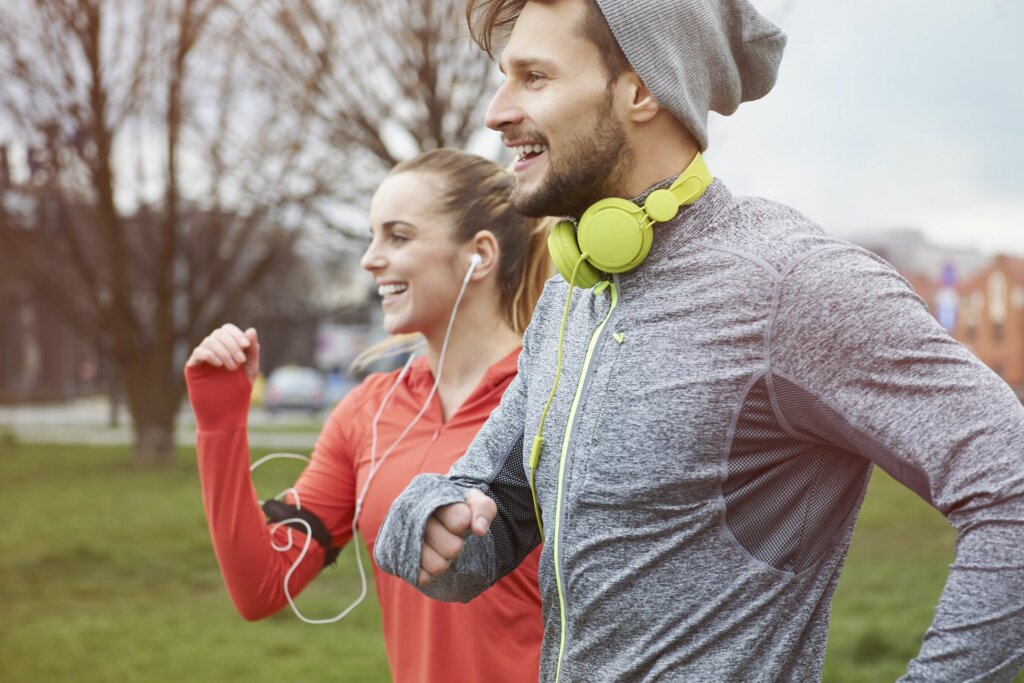Nine Tips to Help You Get into the Habit of Exercising

Many people want to start exercising. However, a large number try and then quit. Even worse, they get injured along the way.
Playing sports regularly is a lifestyle. Therefore, a change like this, which covers several areas of your daily life, must be done gradually.
How can you get into the habit of exercising? In this article, you can find out.
Nine tips to help you get into the habit of exercising
You surely know already that sport promotes your mental health. In fact, it increases serotonin and oxytocin levels, reduces stress (cortisol levels), slows cognitive decline, and improves concentration. Naturally, this is really good, but it’s not necessarily enough to motivate you and make exercise a habit.
Any change in routine and, ultimately, in lifestyle, requires commitment and time. Here are some strategies that’ll help you to get in the habit of exercising.

1. Choose your sport
Many people jump headfirst into sports without having first gone through the process of choosing an activity they like. This only leads to boredom, lack of training, and poor learning.
You’ll have plenty of time to try all the activities you want. However, in the first place, make sure you choose one that you know you’ll enjoy right from the start.
Bear in mind that, to do an hour of cycling, you don’t need to be in good enough shape to be able to spend half an hour running. Indeed, for sports that require physical adaptation, you can start to achieve this in less demanding activities. At the same time, you’ll avoid injuries.
2. Improve your diet
Although your diet may already be healthy and balanced, you’ll have to adapt it to a life in which you spend more energy and in which your muscles will start to get stronger.
The effects of a proper diet on your body’s basal energy will be noticeable in the short term and you’ll soon be able to tell when it’s affecting your performance. If you have doubts about this aspect, consult a nutritionist.
3. Pace yourself
In the beginning, when your body hasn’t yet adapted to exercise, it’s really important that you don’t push yourself too much. That’s because, in addition to the risk of injury, feeling exhausted will lead you to quit or delay your next exercise session.
4. Set a realistic goal
You’re not going to run a marathon in the first week of training. Therefore, the initial goals you set for yourself should be achievable. Loosen your muscles, lose a little weight, try and run for five minutes without getting tired, etc. Be aware of your limits and respect them. You have plenty of time to overcome them.
5. Start with easy exercises
Always start with low-intensity exercises. Lifting a leg or doing a plank for ten seconds may sound boring, but it’s what your body needs to lay down the metabolic and performance foundation you need to move forward.
6. If you can, sign up for activities
Some people find it easier to be consistent and move forward if they sign up for some kind of targeted activity. In addition, this way you get the supervision and advice of a professional, so you’ll avoid any possible injuries.
7. Reward yourself
Starting to exercise is hard, especially if you haven’t done it in a long time. Therefore, look for a reward after each training session. This simple booster will help you stay consistent and look forward to your workout.
Try not to let this reward interfere with your goal. For example, if you want to lose weight, look for a booster that doesn’t involve food.
8. Stretch
Post-exercise stretches are often forgotten. Nevertheless, they help you gain muscle and power. Their greatest benefit involves working on flexibility while the muscles are still warm, so you’ll also be working on preventing injuries.
9. Have fun!
Sport is fun. Therefore, starting to exercise shouldn’t ever be tinged with unhappiness, overexertion, or pain. Part of looking for a suitable activity implies that you have a good time doing it and that your subsequent fatigue is associated with the pleasure of having worked for your own health.

To finish, it’s important to clarify that, if you suffer from any health problem (chronic injuries, diabetes, etc.), it’s best to consult a professional before starting to exercise. In fact, we recommend that you do this even if you don’t have any health problems.
All cited sources were thoroughly reviewed by our team to ensure their quality, reliability, currency, and validity. The bibliography of this article was considered reliable and of academic or scientific accuracy.
- Granados, S. H. B., & Cuéllar, Á. M. U. (2018). Influencia del deporte y la actividad física en el estado de salud físico y mental: una revisión bibliográfica. Katharsis: Revista de Ciencias Sociales, (25), 141-160.
- Conesa, M. V. (2010). Incidencia de las lesiones deportivas en el corredor popular. Cultura, ciencia y deporte, 5(15), 32.
This text is provided for informational purposes only and does not replace consultation with a professional. If in doubt, consult your specialist.








